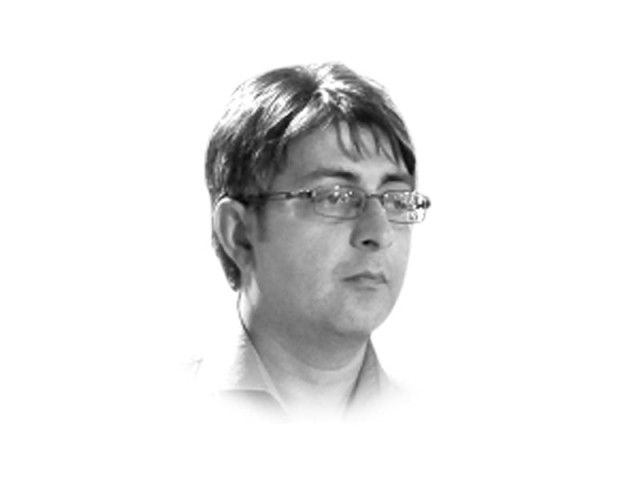Emotions running wild
Elite should stop playing with fire and clouding our policymakers’ judgment by exploiting emotions

The writer is an Islamabad-based TV journalist and tweets @FarrukhKPitafi
But there are forces, frustrated vestiges of the old order that keep muddying waters. Through both mass and social media, we are repeatedly reminded that our system is rotten, that our elite is so criminal there is no hope in democracy, the judiciary or other similar institutions. When the judicial commission’s report on the 2013 elections arrived, it was accompanied by a whispering campaign about the judiciary. Similar things were heard before and after the verdict on the 21st amendment. The same Twitter handles tried to argue the case from both sides. Before the verdict, it was a rent-seeking judiciary ready to undermine the military and after the verdict, it was all dubbed as ‘the doctrine of necessity’. I tried to trace these social media accounts to their previous stances. Most of these were supporters of Tahirul Qadri’s Pakistan Awami Tehreek and Musharraf’s APML. When the Kasur incident came to public attention, the same accounts were used to berate the judiciary and insist that the perpetrators be tried in military courts. Even public figures like Tehmina Durrani were found arguing on the same wavelength.
There is no doubt that the military has sacrificed a lot for the country and in accepting the responsibility of establishing military courts, it has further gone beyond the call of duty to help the nation struggling against the spectre of terrorism. But it is our responsibility not to complicate the situation further. Terrorism is a relatively new phenomenon; child abuse, corruption and other social ills have existed here for considerable time. A system exists to dispense justice in such cases. Public attention is exactly the kind of gentle nudge needed for it to work. What is important? To let institutions mature through evolution or to keep undermining them to win the sycophantic race of causing more confusion?
At this moment, democracy is more than just a system of governance for us. It is a cure for a deeply polarised society; it is the quickest, if not surest way, to stability. It provides us with a soft image and it provides the state with a force multiplier and a soft power. It is, primarily, owing to this gift that we can talk to countries like India as equals. Undermining democracy, or institutions like the judiciary, will only jeopardise our future. And when some members of our elite bemoan the system, claim it is broken, one cannot help but point out that it is they who brought us to this stage. They should stop playing with fire and clouding our policymakers’ judgment by exploiting emotions. You only weaken your state sir.
But that is just our country. India is no different. A nation struggling with poverty could make life easier for its people by winning over Pakistan and China. But it has chosen to appoint hatemongering maniacs like Ajit Doval to important positions. Likewise, the US and China could work together for a better world. But there, too, emotions obscure such prospects. So, dear reader, while policymaking should be a game of cold calculations, it is not. Wild emotions rule the world and are skillfully exploited by the media and rich opportunists for petty gains.
Published in The Express Tribune, August 15th, 2015.
Like Opinion & Editorial on Facebook, follow @ETOpEd on Twitter to receive all updates on all our daily pieces.














COMMENTS
Comments are moderated and generally will be posted if they are on-topic and not abusive.
For more information, please see our Comments FAQ